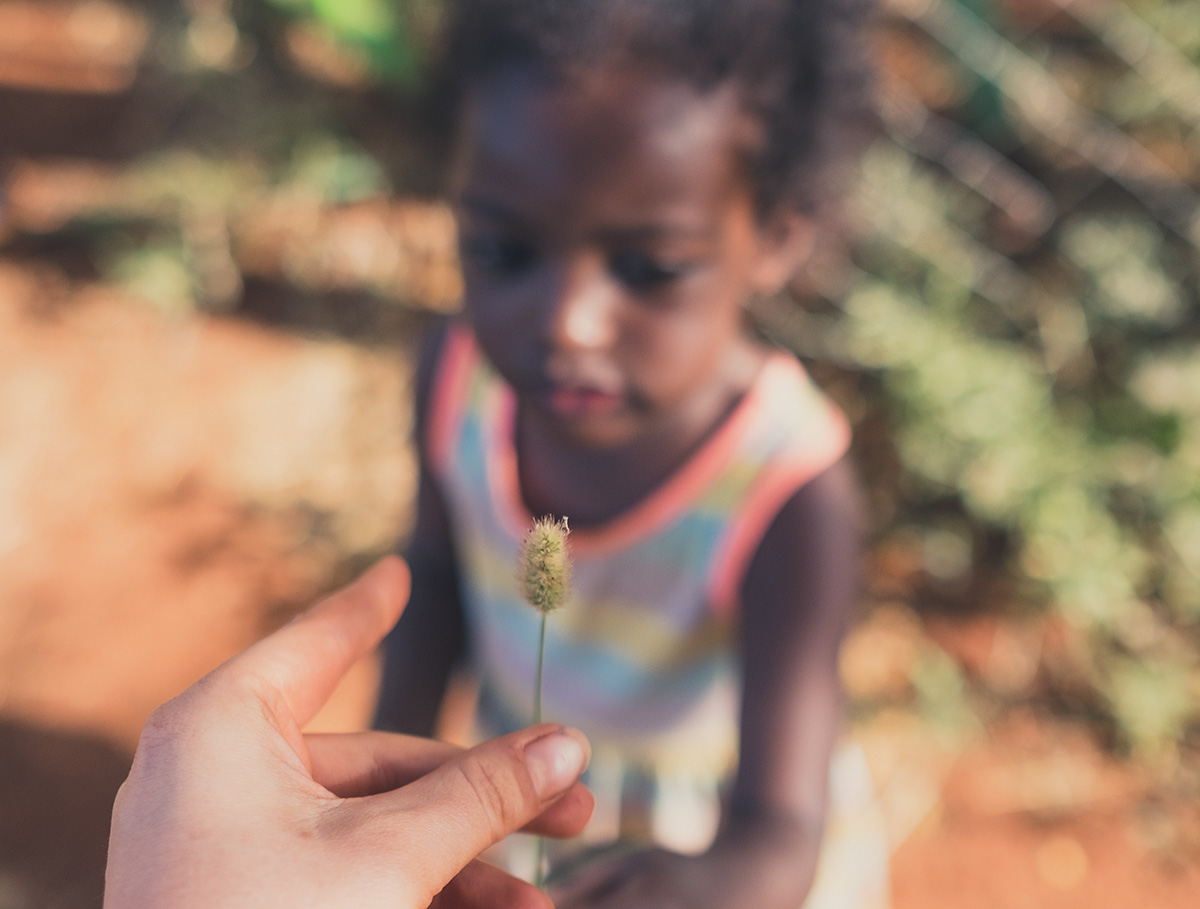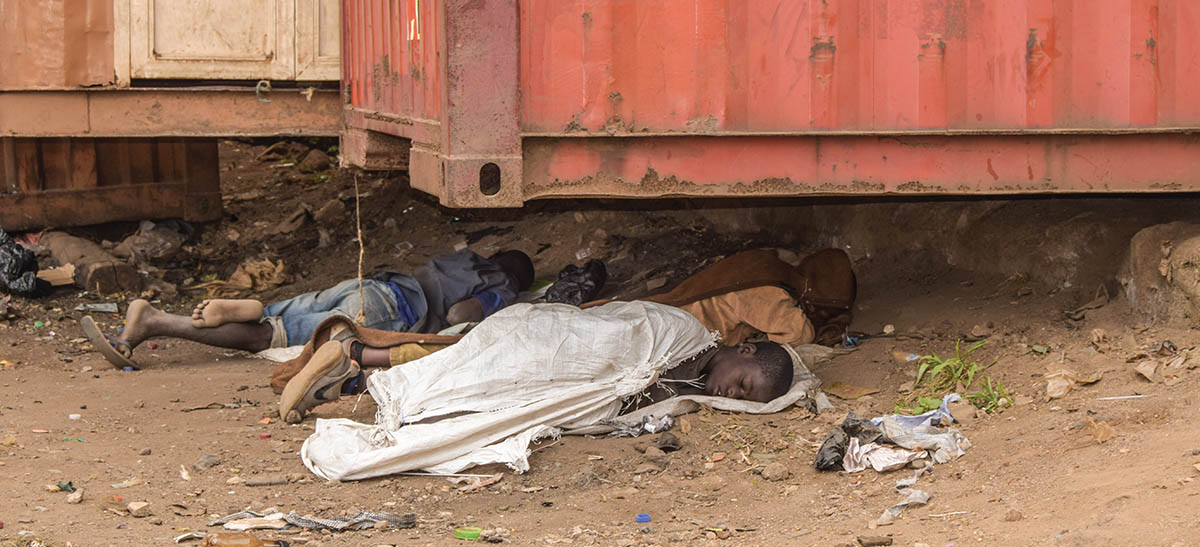Wholeness in mission: Disciples of word and deed

CMS Director of Training and Development David Williams helps us to see that wholeness in mission begins with a biblical perspective on the true nature of poverty. Read on to learn how this affects our approach to holistic mission.
A tale of two robberies
John works as an askari—a night watchman guarding a small cluster of middle class houses in Nairobi, Kenya. He is paid once a week, an income that just about enables his family to survive. They live in Kibera slum, one of the largest informal settlements in sub-Saharan Africa.
One day, John was walking home after picking up his pay packet from the company office. He was mugged; the thieves not only stole his salary, they also stole his uniform and boots. He was left in only his underwear. He found some clothes and rushed back to the office. His manager was furious because John had lost his uniform. He told John that if he couldn’t find the money to buy a new uniform before his next shift, then he would be fired.
John is poor. His family might never recover from this trauma.
A few months ago, a thief walked into St Andrew’s Hall (where I teach future CMS missionaries) and stole my wallet, my driver’s licence with my home address, my car keys and my house keys. I had to change my door locks, re-code my garage remote, cancel all my bank cards, report the theft to the police and deal with the insurance company.
I am not poor. My life was slightly disrupted for about 14 hours.
The Bible on poverty
The Bible has a complex and sophisticated view of poverty. It certainly does not view poverty as ‘not having enough stuff’. There is, of course, a material element to poverty. But the Bible teaches us that our poverty is primarily relational. It often refers to the poor by using the expression “the widow, the orphan and the alien”[1]. Each of these is a relational definition. The widow has lost her husband, the orphan her parents and the alien her community. The widow, the orphan and the alien are poor because they do not have a relational network to care for them. They are trapped in a web of poverty.
The web of poverty is complex. It entangles people through a number of overlapping strands. These include obvious themes like material need, sickness and physical weakness. They also include themes such as vulnerability, exploitation, injustice, oppression and isolation. Poor families, like John the night guard’s, are trapped in a web that disempowers them. They do not have the relationships that enable them to address these problems. Poverty damages relationships and mars your self-esteem. A friend who has experienced terrible poverty told me, “I hated what poverty did to me: it made me mean and selfish, I made bad decisions and it messed up all the relationships in my family.”
The Bible understands the relational nature of poverty and so addresses poverty in relational ways. In the Old Testament, the nation of Israel is supposed to structure its community life so that the poor are included, not marginalised. The covenant makes specific provisions for the widow, the orphan and the alien. These provisions are relational as well as material. The poor are gathered into the life of the village, they are included, dignified with work and so their material needs are met. The book of Ruth tells a beautiful story of the way that a widow and a widow/alien are gathered into the community at Bethlehem and provided for through covenant faithfulness.

Children sleeping rough. CMS missionary Maggie Crewes works with Retrak in Africa seeking to ensure that no child is forced to live on the street.
In the New Testament, the Lord Jesus offers a much more radical way of addressing poverty. He proclaims a message that is good news to the poor. How can the proclamation of the gospel be good news to the poor? The answer to this question lies in our understanding of the nature of poverty. Poverty is about damaged and broken relationships and a damaged and broken self-identity. The gospel message heals and restores these. The good news of Jesus Christ restores my relationship with God and gives me a new identity. I am his child, loved by him and rescued by him. I have worth, I am valued and I am loved. The good news of Jesus Christ also gathers me into a new community. I belong, I am part of a new humanity, I have a new family. This family includes me and cares for me. The New Testament’s description of this care certainly includes care for my material needs. Just as the widow, the orphan and the alien are incorporated into the nation of Israel in the Old Testament, so they are incorporated into the local church in the New Testament.
The Bible on wholeness in mission
This understanding of poverty and the Bible’s response to it underpins CMS’s policy about wholeness in mission.
We believe that mission belongs to God. The Bible is the story of God creating the heavens and the earth, rescuing his broken world, redeeming a people for himself from all nations, and reconciling all things under the Lordship of Christ. God is bringing glory to himself as history moves towards the day of Christ’s return. Mission is God’s activity and he commissions his people to participate in his mission.
We recognise that the world is broken and damaged because of human sin and therefore falls under God’s wrath and judgement. Reconciliation with God is the greatest need of every human being. We believe that the cross stands at the centre of salvation history. The death and resurrection of Jesus Christ is the decisive and central act of God’s mission and stands at the heart of our theology of mission. Redemption is only possible because of the substitutionary death of Christ on the cross. God’s Church is gathered as people respond in repentance and faith to the proclamation of this gospel.
Reconciliation with God is the greatest need of every human being.
The Church is God’s new creation breaking into this damaged world. God gathers his people into his Church, into local gatherings of those who have been redeemed by Christ’s death and filled with his Holy Spirit, living new lives of love in obedience to and in the likeness of Christ. The Church is the breaking into this age of the new heavens and the new earth, demonstrating God’s power and wisdom. The Church is both the outcome of God’s mission and a participant in God’s mission.
The community of God’s people bear witness to the costly and sacrificial nature of the gospel of Jesus Christ. The world hears from them the gospel of Christ crucified and sees in them lives that are cross-shaped. This cross-shaped integration of word and deed in the lives of God’s people is salt and light to a watching world.
A cross-shaped mission that integrates word and deed
Word and deed are integrated in the lives of God’s people, gathered into holistic communities. As the community of God’s people live under God’s rule, loving God and loving neighbour, they are a holistic community. This means boldly proclaiming the gospel and calling people to repentance and faith in Jesus Christ. It also means, among other things, radically loving the poor, the dispossessed and the needy, advocating for them and campaigning against injustice and evil—especially for those who are our brothers and sisters in Christ. Word and deed are integrated in the life of each believer and in the life of the Church.
All CMS missionaries are disciples of Christ whose lives are characterised by a desire and commitment to witness to him through the verbal proclamation of the gospel and by the demonstration of his love and justice. No matter where they are located or the nature of their ministry, they are committed to proclaiming the gospel in ways that are appropriate to their context. Equally, all are committed to living in a manner worthy of the gospel as they live out the love and justice of Christ in every circumstance. Where possible, all CMS missionaries are members of local churches where their commitment to holistic discipleship can be lived out.
This is wholeness in mission and we believe that it is for every believer in every country. This is not just for missionaries but for every faithful disciple of the Lord Jesus Christ.
CMS seeks to honour God in the way it pursues wholeness in mission. Read the policy paper referenced in the article here.
CARE
Caring is more than just giving money. To better understand the needs of CMS missionaries, why not sign up to receive their quarterly newsletters and prayer points? Go to cms.org.au/missionaries.
[1] Deut 10:18; 14:29; 16:11, 14; 24:17f; 26:12–13; 27:19; Pss 68:5; 82:3; 94:6; 109:12; 146:9; Jer 22:3; Ezek 22:27; Zech 7:10; Mal 3:5 etc.











































































































